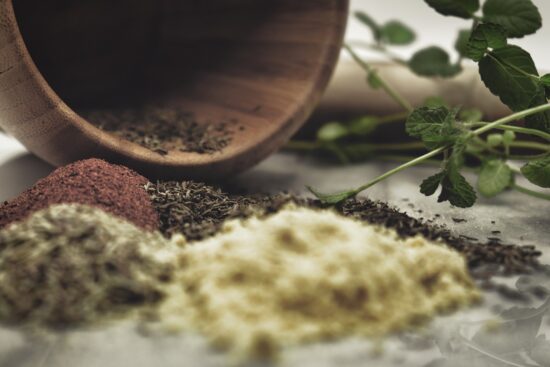Growing risks of antimicrobial resistance (AMR) in herbal therapies: a comparison of commercial and homemade treatments for stomach ulcers, typhoid fever, and malaria
This study aims to measure the level of microbial contamination in herbal products marketed in Kaduna markets and orthodox herbal cocktail regimens used to treat malaria, typhoid, and stomach ulcers in Kaduna State, Nigeria. The study involved collecting mango, guava, moringa, lemongrass, banana, and orange leaves from farmlands and unripe plantains. The study isolated and characterized bacteria strains using a methodical process, including Gram staining and catalase tests. The results showed concerningly high levels of bacterial contamination, with the total count exceeding the World Health Organization’s guideline. Fermented plantain had the highest bacterial count, especially for S. aureus. The study highlights the need for strict quality control procedures to guarantee the security of herbal medicines and reduce potential health hazards and antimicrobial resistance (AMR) in high- and medium-density settlements.
AMR NEWS
Your Biweekly Source for Global AMR Insights!
Stay informed with the essential newsletter that brings together all the latest One Health news on antimicrobial resistance. Delivered straight to your inbox every two weeks, AMR NEWS provides a curated selection of international insights, key publications, and the latest updates in the fight against AMR.
Don’t miss out on staying ahead in the global AMR movement—subscribe now!







